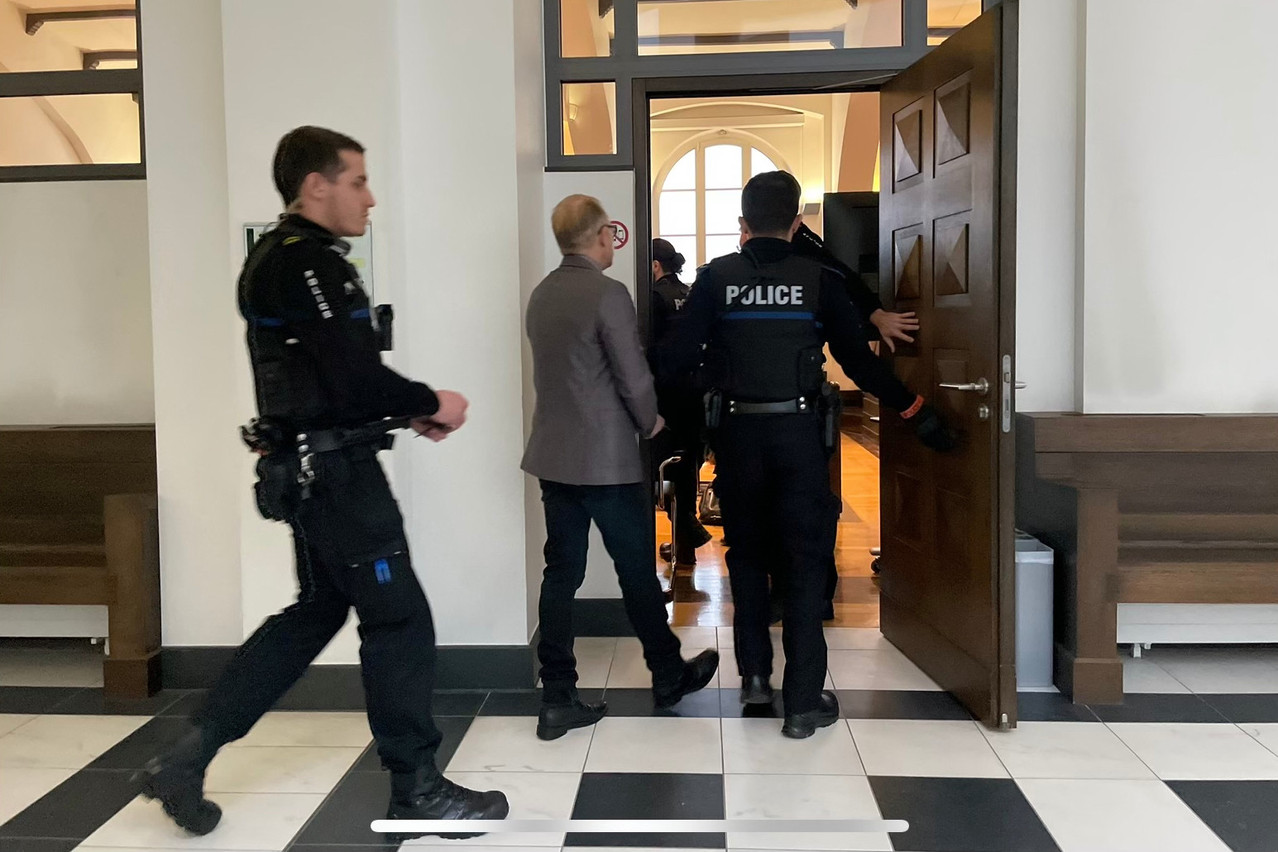The civil servant identified as Mr G. drove a Bentley and Aston Martin to work, sometimes a Porsche or a Harley Davidson. No one raised an eyebrow at the expensive passion for motor vehicles, despite the salary for the official in charge of finances being set at €58,000 a year.
For 19 years, the embezzlement went unnoticed, with most of the funds removed during mayor Marie-Thérèse Gantenbein’s mandate between December 1999 and 2009, investigators said.
As is often the case with financial crimes, it takes years for the mechanism to come to light, commented the divisional commissioner on Wednesday, who had come to present the results of his methodical investigation. More than €5.2m were stolen, three quarters of which was to the detriment of the municipality, but also of the state and a few others.
Mr G. and Mr F., another civil servant, are suspected of defrauding not only the commune but also the ministry of the economy, the ministry of the environment and the ministry of tourism (from 2010 to 2014). Mr G. is accused of launched a fundraising campaign for sick children, receiving €100 from another municipality.
A trivial question about payments from Lalux
One day in the spring of 2019, the municipality looked into a payment from Lalux that had never arrived in its accounts, only for the municipal collector to discover that the insurer had indeed paid its dues, but to the dormant account of an association whose treasurer was Mr G. On 20 June, the municipality lodged a complaint for embezzlement, which was then estimated at €3.1m.
The next day, the mayor, Marc Lies (CSV) called a meeting of all the civil servants to inform them of the procedure underway. Mr G. called in sick, unlike his ‘partner,’ Mr F., who heads the technical services. A police scan of their smartphone revealed a four-hour meeting and a conversation with a lawyer.
At the beginning of July, Mr G. cleaned out his office and removed potentially incriminating files. Objects disappeared, documents were destroyed. On 25 July, both suspects were dismissed from their jobs and the courts moved into high gear.
Mr G. had told his colleague as early as 2000 that he had found a trick to get money out without being detected. A dormant account in two associations, even if one of the two was mainly used, a “design” software with which he prepared about thirty templates and a stamp, allowed him to pass 166 invoices. The money transferred to the two accounts was then recovered by the two men from their personal accounts.
They reimbursed some of the money with the intention of putting an end to the legal proceedings.
Various treats
Mr G. is suspected of using the money to pay for cars, work on his flats and houses in Esch-sur-Alzette and Itzig, a flat on the Medina in Tetouan, Morocco, and Rolex watches.
Mr F. appears to have gained less from the deal--less than €900,000 despite an unwritten 50-50 deal--and is suspected of using the money to pay for expensive holidays, such as a trip to Antarctica, a Lapierre luxury bicycle, an expensive grill, and a mailbox.
The third man, a contractor from Itzig referred to as Mr D., finally got involved in the adventure, wanting to make sure that the municipality would go through his company when it needed to do some work.
He agreed to carry out work on the second suspect’s premises, without the investigation having sought to determine whether he had benefited from this attempt at corruption.
Trial continues
The trial of this trio, accused of having given instructions to embezzle public funds, usurpation of office, breach of trust, forgery, swindling, subsidy swindling, receiving stolen goods and money laundering, will continue on Thursday afternoon with the hearing of witnesses.
But it already poses a question: how can a civil servant commit misdeeds with impunity, to the detriment of a municipality and the state, for years?
